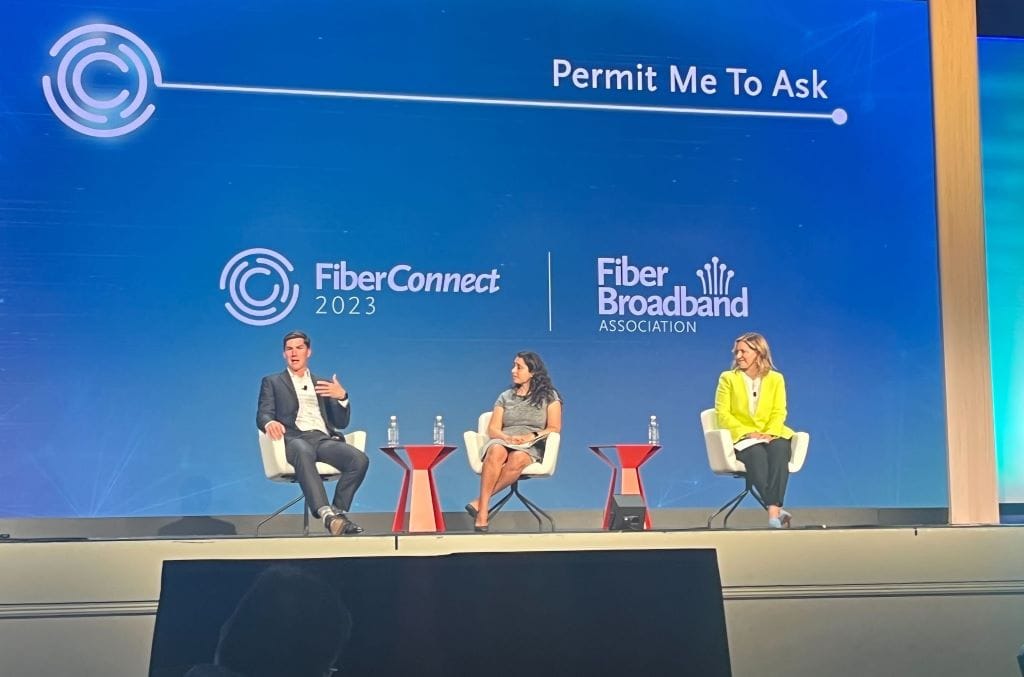Fiber and Wireless Companies Agree States Should Incentivize Local Permitting Reform
State can offer grant application points and recognition for adhering to permitting guidance.

ORLANDO, August 25, 2023 – Representatives for internet service providers asked that state broadband offices provide incentives for localities to improve their permitting processes for broadband builds at a Fiber Connect panel Wednesday.
States can offer incentives like state-wide recognition and additional points in grant applications for communities that voluntarily adopt guidelines that improve the permitting process for broadband providers, said Claude Aiken, chief strategy officer at fixed wireless and fiber provider NextLink.
We have seen success in Indiana, which adopted a broadband ready communities program in which municipalities and counties can voluntarily commit to have a singular point of contact for all permitting and review permits in a timely manner, among other guidance, said Aiken. The state provides a list of municipalities and counties that are in line with the guidance which allows providers to see which communities are willing to work with them to improve broadband access.
Permitting reforms are critical for broadband builds, especially as the $42.5 billion through the Broadband Equity Access and Deployment program comes down the pipeline, said Aiken. Enhancing permitting at the local level is particularly important because each community handles barriers in a unique way and the many different requirements can significantly delay projects, he said.
“If you can’t get a permit, you can’t build,” he continued. Different localities have different approaches, capabilities and approaches to permitting and can be impacted by a variety of different factors. For this reason, it is essential that the process is coordinated and transparent.
From the provider perspective, being able to accurately project the timeline of permit approval or disapproval is critical, said Aiken. There is a shot clock on building out BEAD projects, and it is important that we as the provider are able to forecast needs for supply chains.
Ariane Schaffer, public policy and government affairs manager for Google Fiber, suggested that localities create an online portal in which providers and vendors are able to track the permit as it goes through different agencies, localities and inspection procedures.
She added that it is helpful to have regular meetings with communities to air issues with permits even if it is outside of their control to help coordinate on a shared goal to find a solution to delays. “Coordination is key,” she said, adding her support for a single point of contact in a community that can pass along information about permits to providers.
Lack of transparency is a huge hurdle when submitting an application, Schaffer continued. The process can be extended if the locality does not communicate properly up front which documents it needs to see for permit approval.
Aiken agreed, saying that is important for local permitting authorities to remember that providers and agencies alike have a common goal: to connect all the unserved and underserved areas of the jurisdiction.
This discussion took place days after a representative from the federal permitting council asked for broadband industry coordination to streamline broadband projects through the federal permitting process. Experts have touted permitting delays as a major hurdle for broadband grants through the BEAD program for months. They have urged states to begin the process of federal permits early to avoid delaying program builds.










